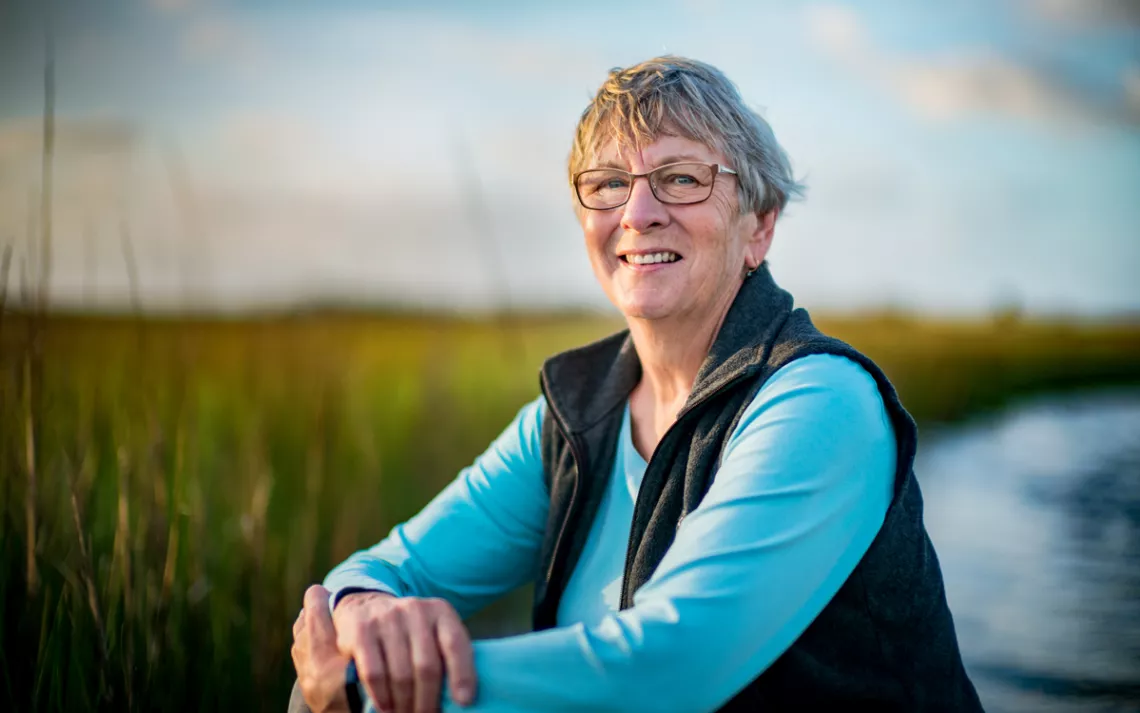Submerged in Ocean Activism
Penny Hooper works to save the coast she loves

Penny Hooper | Photo by Charles Harris
- Name: Penny Hooper
- Location: Smyrna, North Carolina
- Contribution: Conservation chair of the Sierra Club's Croatan Group
How did you get involved with the Sierra Club?
I've been a member since 1986, but the nearest group was three hours away, so I wasn't active. In 2014, there was a chance to develop wind power in our area. The Sierra Club helped us out, and we were able to form a local group. We ended up losing the fight for onshore wind, but we gained the Sierra Club.
Are you from North Carolina?
No. My husband and I moved to the coast here in 1974 to start a commercial fishing business—soft- and hard-shell crabs. It's extremely labor-intensive. We also raise clams and oysters. We live at the end of a dirt road. The nearest town is 20 minutes away. It's been a good life for us and our kids, but it revolves around clean water and air.
What issues do you work on?
Renewable energy is a big focus of mine, and I serve on several statewide committees. I've also been consumed for the last three years with trying to stop offshore drilling and seismic blasting. The economy here centers on tourism and commercial and recreational fishing, so the issues cross partisan boundaries. There are endangered right whales off the coast here too. And of course, it puts my husband out of business if there's an oil spill. Clams don't eat oil.
What do you do aside from volunteering for the Sierra Club?
My husband and I were both professional divers, and we still dive a lot. I'm also very involved with NC Interfaith Power and Light, which works on climate change through faith-based communities.
Are conservative congregations receptive to your message?
All faiths have their own version of creation care, and you just have to point that out. I taught environmental biology for 16 years at a local community college. I know the facts on climate change back and forth, but the facts are not working. So now I work from the heart instead of the head.
Tell me something about yourself that most people don't know.
In 1972, I lived underwater for seven days in something called the Hydrolab. It was part of my research for my master's degree.
And you didn't get claustrophobic?
I had the whole ocean! I'd just go out for a dive, you know, like you go out for a walk. Back in the 1970s, my husband and I were total idealists and thought that people could live underwater in little communities. It hasn't happened, but it was a good thought.
 The Magazine of The Sierra Club
The Magazine of The Sierra Club



